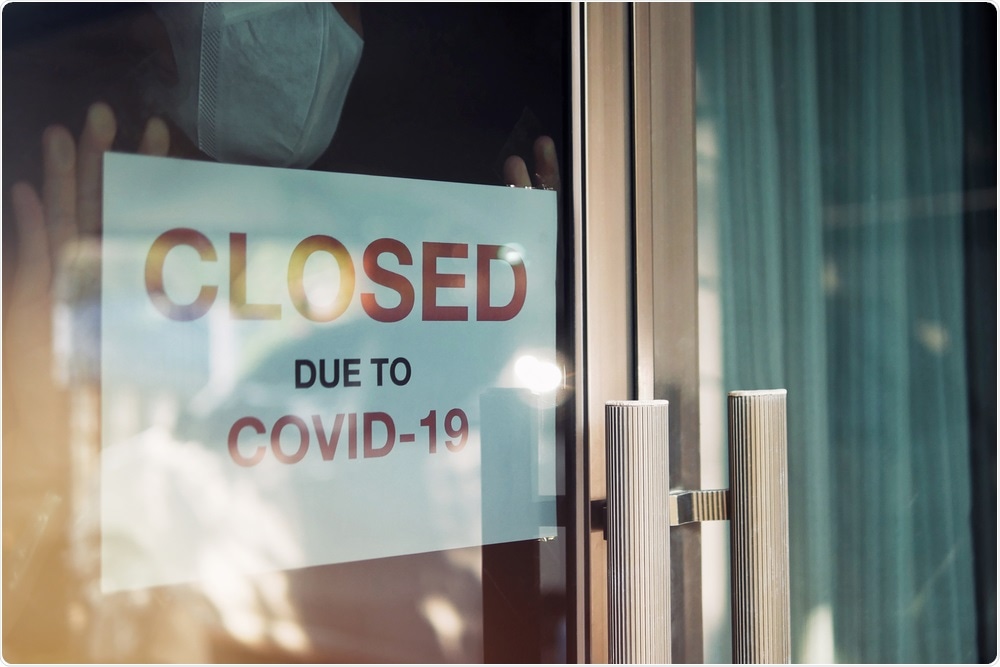Strict COVID anti-contagion policies can provide long-term health benefits
Vaccines may possibly be the to start with line of protection versus the serious acute respiratory syndrome coronavirus (SARS-CoV-2). The coronavirus disorder (COVID-19) pandemic was declared as one particular in March 2020 however, containment actions have been not greatly enforced until several months immediately after this declaration. Finally, most governments around the environment declared lockdowns throughout states and nations and enforced rigid anti-contagion procedures like masking and actual physical distancing to suppress infection charges.
 Review: Small- and medium-phrase impacts of demanding anti-contagion insurance policies on non-COVID-19 mortality in China. Graphic Credit score: Chansom Pantip / Shutterstock.com
Review: Small- and medium-phrase impacts of demanding anti-contagion insurance policies on non-COVID-19 mortality in China. Graphic Credit score: Chansom Pantip / Shutterstock.com
History
The essential to analyzing the welfare implications of anti-contagion guidelines is to study their shorter- and long-term community well being penalties. Multiple research have shown that rigorous actual physical distancing and human mobility restrictions can properly regulate the unfold of SARS-CoV-2 and ultimately avoid fatalities. On the other hand, the efficacy of these kinds of interventions and their consequences on disorder designs and deaths from other will cause remains debatable.
According to just one idea, steps like lockdowns could harm overall inhabitants wellbeing in the shorter expression, as human mobility constraints would reduce access to healthcare solutions. Additionally, business limitations may well guide to sharp economic disruption and substantial layoffs, thereby influencing economies noticeably.
In distinction, theories in assistance of these insurance policies argue that, without having helpful interventions, the pandemic would induce increased overall health problems above time, as adverse economic harm could be much more significant and a larger variety of COVID-19 clients may well jeopardize health care provision.
Having said that, there is also speculation virus containment policies may well bring about unintended overall health added benefits due to the fact they persuade protecting well being behaviors like masking and physical distancing. These actions could subsequently cut down hazards involved with organization things to do like enhancing air quality, decreasing perform and site visitors mishaps, and decreasing the transmission of other infectious health conditions like seasonal influenza.
In a latest Nature Human Behavior examine, researchers evaluate the brief- and extensive-time period positive aspects of these policies on well being results in the Chinese inhabitants.
About the examine
In the latest research, the scientists made use of detailed and agent death documents from China’s Condition Surveillance Details (DSP) program, covering more than 324 million persons in 605 DSP districts/counties in 321 towns. These information accounted for 24.3% of China’s populace. Additionally, the scientists collected data from different news media and authorities bulletins on no matter if a city executed non-pharmacological interventions like lockdowns.
Matching the datasets, the researchers manufactured a every day DSP web site-degree panel dataset from January 1, 2020, to July 31, 2020, which integrated 1,105,938 death information in the DSP method that had been described until eventually September 28, 2020.
Scientists made use of a three-level assessment process to evaluate the affect of demanding anti-contagion guidelines. For starters, they approximated the small-time period impacts of these guidelines on the amount of fatalities from various leads to, including cardiovascular ailments (CVDs), harm, acute decreased respiratory infections (ALRIs), persistent reduce respiratory infections (CLRIs), neoplasms, and other will cause through the review interval.
Secondly, the scientists investigated no matter whether these insurance policies had very long-lasting impacts on general public wellbeing. In the third action, they analyzed the heterogeneous impacts of these policies throughout unique towns. They hypothesized that outcomes could differ along many dimensions which include money ranges, industrial structure, first health position, and initial air pollution degree.
Review results
Applying death registries based on 300 million Chinese people and a change-in-variations layout, the researchers calculated that China’s rigid anti-contagion guidelines through the COVID-19 pandemic noticeably lowered non-COVID-19 mortality outdoors Wuhan by 4.6%. The overall health benefits persisted and turned even additional impactful right after the actions were being loosened. Ultimately, COVID-19 similar mortality was reduced by 12.5% in the medium expression.
There were important modifications in the behavioral sample of the Chinese populace who have been now putting on masks consistently and practicing social distancing. There was a sizeable reduction in air air pollution and traffic incidents that were being assumed to have pushed these success.
The researchers approximated that 54,000 lives could have been saved from non-COVID-19 brings about for the duration of the 50 days of rigorous guidelines and 293,000 in the subsequent 115 days. These encouraging benefits instructed that virus countermeasures had been not only successful in managing COVID-19 in China but also introduced about unintended and substantial community overall health gains.
Implication
This examine showed that demanding anti-contagion policies ended up dependable for unintended short- and medium-term overall health gains. There had been much less fatalities from CVDs, traffic mishaps, and ALRIs, and CLRIs all through the time period of SAPs.
These wellbeing gains persisted into the put up-lockdown time period. These kinds of interventions can thus be regarded sustainable possibilities to make improvements to the health and high-quality of lifetime of the population, even after the pandemic has subsided.
Journal reference:
- 
- Qi, J., Zhang, D., Zhang, X., et al. (2021). Limited- and medium-phrase impacts of rigid anti-contagion guidelines on non-COVID-19 mortality in China. Nature Human Conduct. doi:10.1038/s41562-021-01189-3.






